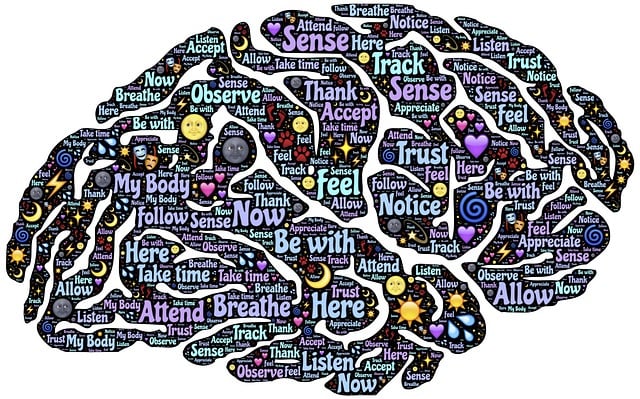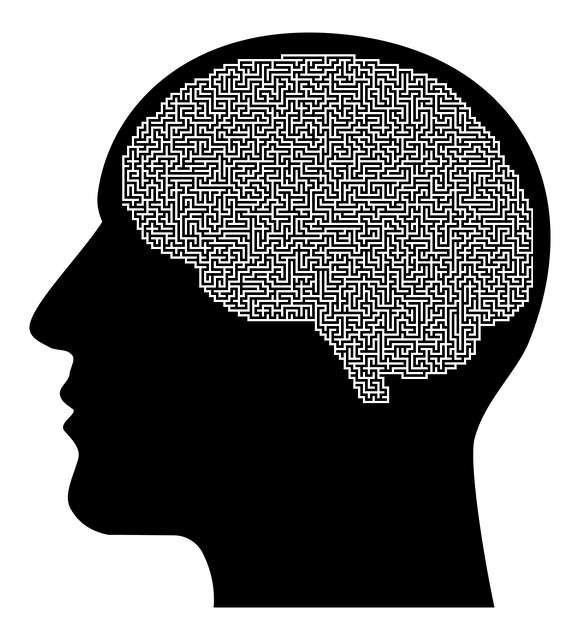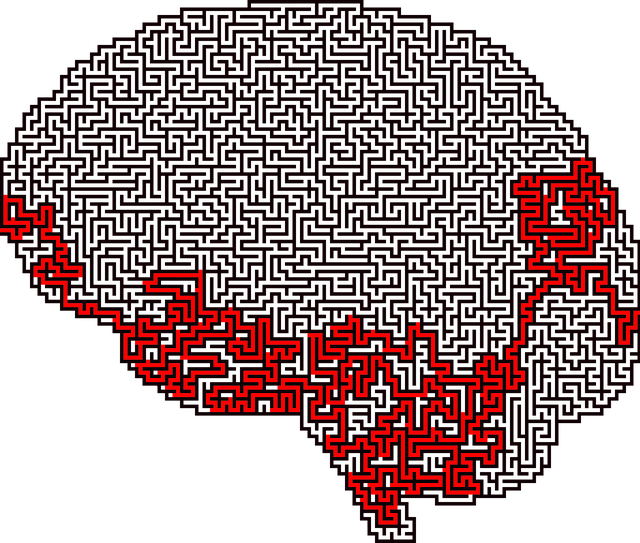Understanding Mental Health Data is crucial for therapeutic interventions like Greenwood Village Cognitive Processing Therapy (GVCPT), which leverages structured interviews, surveys, and digital apps for accurate data collection. Automated tools manage large datasets, enabling GVCPT to use specialized software for efficient client data preparation and personalized treatment strategies focusing on burnout prevention and trauma support. Interpreting cognitive processing patterns through computational modeling and neuroimaging aids in identifying maladaptive strategies, with GVCPT tailoring interventions like Compassion Cultivation Practices for enhanced emotional healing. This evidence-based therapy empowers individuals to manage their cognitive processes, improving emotional well-being and conflict resolution skills, thereby effectively treating anxiety, depression, and trauma symptoms.
Mental health data analysis is a critical component in understanding and improving overall well-being. This article explores the intricacies of analyzing and interpreting mental health data, focusing on the Greenwood Village Cognitive Processing Therapy (GVCPT) as a case study. We’ll delve into the collection and preparation of mental health data, techniques for deciphering cognitive processing patterns, and the significant impact of GVCPT on patient outcomes. By understanding these processes, healthcare professionals can make informed decisions to enhance therapeutic interventions.
- Understanding Mental Health Data: Collection and Preparation
- Techniques for Interpreting Cognitive Processing Patterns
- Greenwood Village Cognitive Processing Therapy: Application and Impact Analysis
Understanding Mental Health Data: Collection and Preparation

Understanding Mental Health Data is a foundational step in any analysis process, especially when it comes to therapeutic interventions like Greenwood Village Cognitive Processing Therapy. The collection of accurate and relevant data plays a pivotal role in mental health research and treatment planning. It involves capturing detailed information about individuals’ thoughts, emotions, behaviors, and overall psychological well-being. This data can be obtained through various methods such as structured interviews, surveys, or digital tracking applications tailored for mental health monitoring.
Effective data preparation is crucial to ensure the quality of analysis. This includes cleaning the data to remove inconsistencies or errors, ensuring anonymity and privacy, and organizing it in a structured format suitable for interpretation. In today’s digital age, many platforms offer automated data collection and preparation tools, making it easier to manage large datasets efficiently. For instance, Greenwood Village Cognitive Processing Therapy might utilize specialized software to collect and prepare client data, facilitating comprehensive analysis for personalized treatment strategies and contributing to the overall goal of burnout prevention and trauma support services while incorporating mental health education programs design.
Techniques for Interpreting Cognitive Processing Patterns

Interpreting cognitive processing patterns is a nuanced aspect of mental health data analysis, offering valuable insights into an individual’s emotional and psychological landscape. Professionals utilize various techniques to unravel these complex patterns, such as computational modeling and neuroimaging, which help in understanding how the brain processes information and generates responses. By examining these patterns, therapists can identify maladaptive cognitive strategies that contribute to mental health challenges, like anxiety or depression.
Greenwood Village Cognitive Processing Therapy, for instance, leverages these insights to tailor interventions. Compassion Cultivation Practices have been integrated into therapy sessions to foster emotional healing processes. Mental Health Awareness is enhanced by recognizing and interpreting these patterns, enabling therapists to provide more effective support. This approach not only facilitates personal growth but also promotes a deeper understanding of the intricate interplay between cognition, emotion, and behavior.
Greenwood Village Cognitive Processing Therapy: Application and Impact Analysis

Greenwood Village Cognitive Processing Therapy (GVCPT) is a highly effective approach that focuses on transforming negative thought patterns and behaviors into more adaptive, healthy ones. This therapy technique has gained significant traction in mental health data analysis due to its measurable outcomes and structured framework. By employing evidence-based strategies, GVCPT aims to enhance emotional well-being promotion techniques and facilitate conflict resolution techniques among individuals struggling with various mental health issues.
The impact of GVCPT is evident in its ability to empower patients to take control of their cognitive processes. Through meticulous risk management planning for mental health professionals, this therapy enables individuals to challenge and reframe unhelpful thoughts, leading to improved coping mechanisms. Case studies have shown remarkable results, demonstrating that GVCPT can significantly reduce symptoms associated with anxiety, depression, and trauma, thereby improving overall mental health outcomes.
Mental health data analysis, specifically using techniques like Greenwood Village Cognitive Processing Therapy, offers valuable insights into cognitive processing patterns. By understanding and interpreting these data, therapists can tailor interventions for better patient outcomes. The application of advanced analytical methods in mental health is a promising step towards enhancing therapy effectiveness, ensuring that treatment strategies are evidence-based and targeted.














